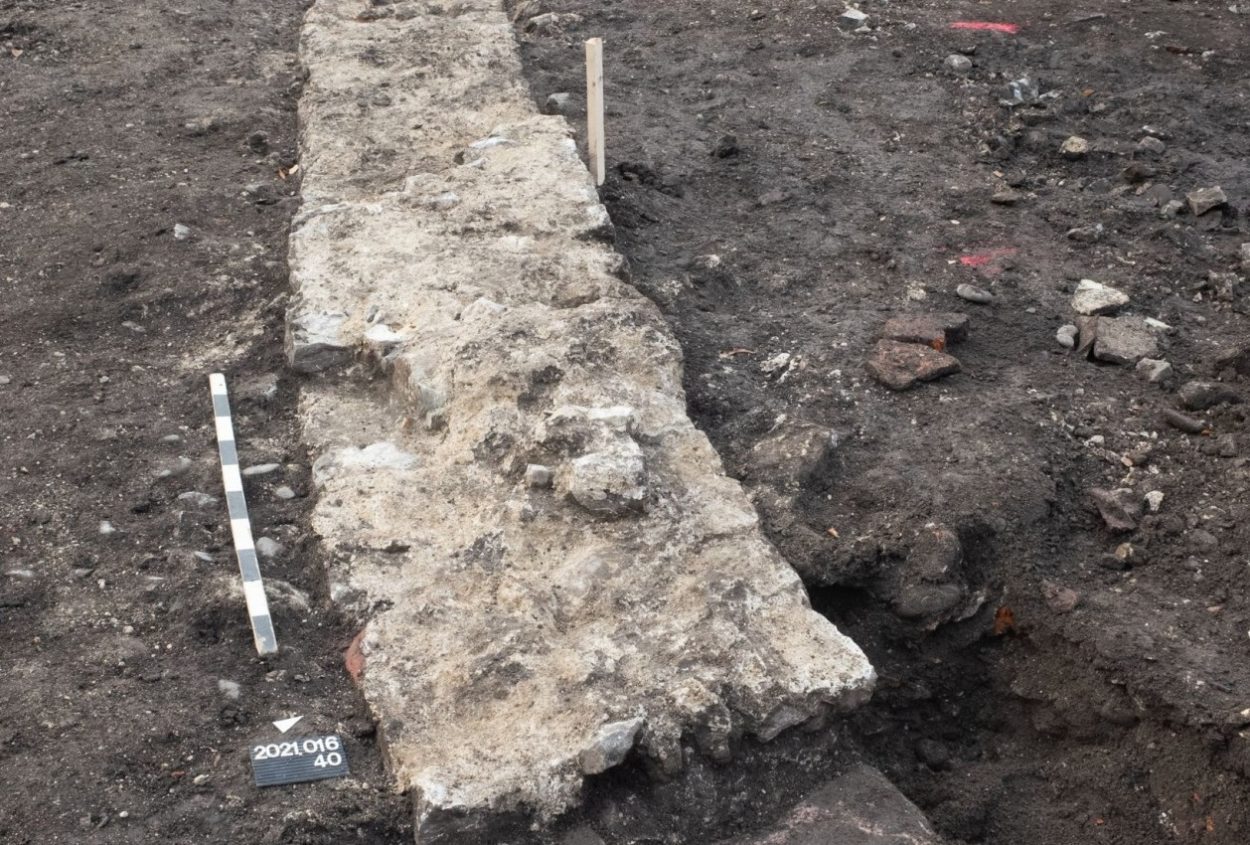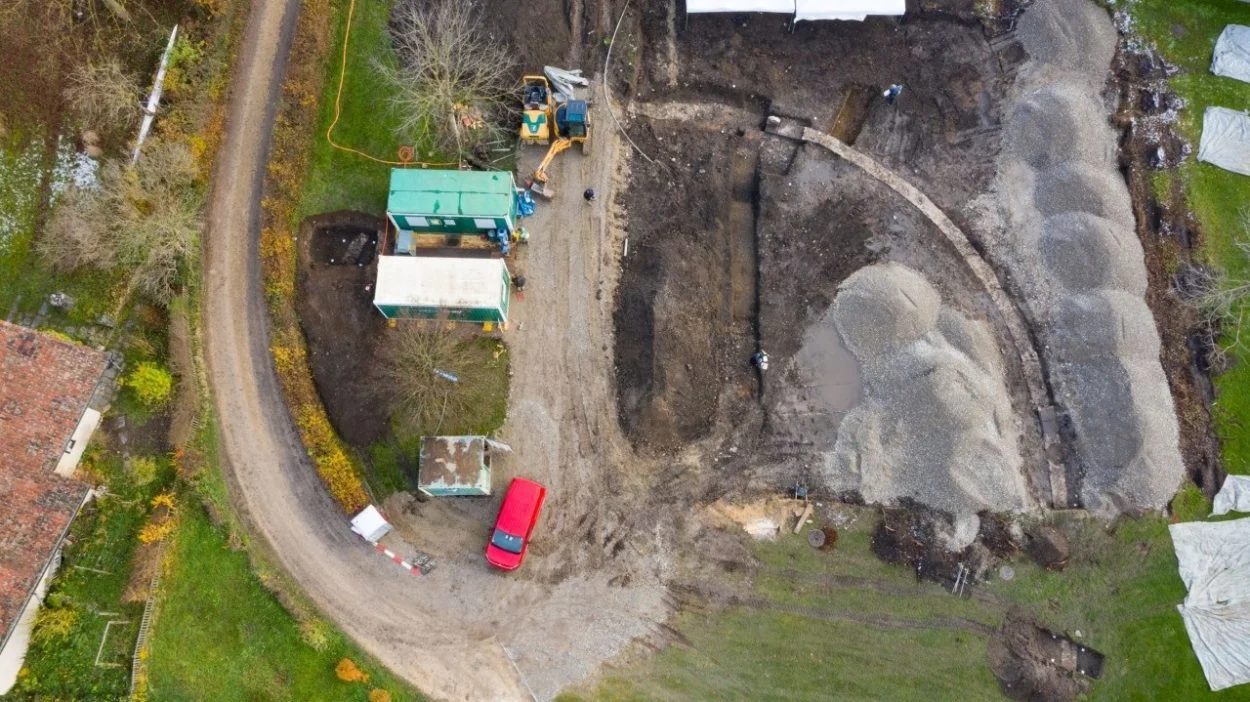Archaeologists from Aargau Cantonal Archaeology have announced the discovery of a Roman amphitheatre in Kaiseraugst, located in the canton of Aargau, Switzerland, formerly the Roman town of Augusta Raurica.
Augusta Raurica, or Colonia Augusta Rauracorum, was founded by Lucius Munatius Plancus around 44 BC in the vicinity of a local Gallic tribe, the Rauraci. During the 2nd century AD, the town emerged as a prosperous commercial trading centre with an estimated population of around 20,000 inhabitants.
The amphitheatre was uncovered during the construction of a new boathouse for the Basel Rowing Club on the Rhine in Kaiseraugst, revealing an oval ring of walls that measure around 50 metres long and 40 metres wide, west of the Kaiseraugst fort, the Castrum Rauracense.
Excavations also found a large gate south of the amphitheatre complex flanked by two side entrances and the remains of another entrance on the arenas western side made from large sandstone blocks.

The interior arena walls were faced in fine plaster, where spectators sat on wooden grandstands (evidenced by the imprint of wooden post holes) to watch gladiatorial games and animal hunts.
The researchers suggest that the amphitheatre dates from around the 4th century AD during Late Antiquity and is the second amphitheatre in the canton of Aargau after the Vindonissa (Windisch), and the third such monument found in Augusta Raurica.
Aargau Cantonal Archaeology stated: “The monument underlines the importance of the Castrum Rauracense in the 4th century AD. The fort was an important settlement with a military function on the Roman border, but also an administrative centre.”
Header Image Credit : Aargau Cantonal Archaeology





